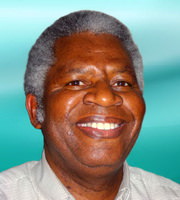
Modern anti-stress techniques urge us to deal with stress, to nip it in the bud and to build a life without it. We are striving to gain well-balanced life and are searching for methods of “defeating stress” to avoid anxiety and depression resulting from too much stress. Yet, we do not take into account one important issue: stress is life itself, you cannot live your life without experiencing stress. What matters is the way you handle stress. The only step we need to take in a stressful situation is to transform stress into energy!
Stress is one of the most “fashionable” topics. Many scientific papers are devoted to stress. We are discussing stress on TV screens and radio programs. And it is impossible to count how many techniques aiming at fighting with stress have been created recently! Stress is to blame for all our problems and diseases, starting from depression, hair loss and menstrual disruptions ending with unsuccessful relationships and deficiencies in parenting. Stress is a cult that needs to be maintained! But otherwise, we are living in conditions that require us to produce urgent and emergency reactions and decisions, as we know, these decisions and actions become a reason for stress. Do you really believe that our ancestors did not know what stress was? Do you think that only in the age of information technology we are facing this problem?
In 2009, Canadian scientists examined the remains of the ancient Incas in order to find samples of cortisol (a stress hormone) in hair. The result was unexpected: people living in the 1530-1550 years BC were not just familiar with stress, they lived in conditions of constant stress. Thus, we can’t blame civilization and our informational society for problems caused by stress.
It’s normal to be nervous!
Try to avoid stress is the same as avoiding life. Stress is a natural reaction to any psychological or physical effects, causing loss of balance in our organism.
There are two types of stress:
– Eustress – positive (favorable) stress
– Distress – negative (unfavorable) stress
Eustress helps us to concentrate and defend ourselves in case of threat or danger. In most cases, eustress positively affects a person: strengthens the immune system, improves physical and emotional endurance, develops abilities for adaptation. However, please note an important point: eustress usually does not last long. In other words, in a stressful situation, the human body, “released” hormone cortisol, mobilized forces, solved the problem and immediately relaxed. This is a kind of training.
Distress is another thing. It occurs when, despite of all efforts, the problem can’t be solved and the organism can’t relax. The body remains in an extremely tense state. Immune system suffers first leading to further health problems. It is possible to cope with distress only with the assistance of a specialist. But, fortunately, such situations are infrequent in our everyday life. Usually, what we used to call stress is eustress. Therefore, our task is to benefit from it!
Eustress as a source of energy
Imagine the situation: a person lives a quiet, even boring life. He doesn’t have to make special efforts to do something. And suddenly he faces a serious problem, for example, he is dismissed. Suddenly he has to survive, thus, a person has to try new areas and things and eventually succeeds. Under stress the body prepares to deal with danger and this generates a huge amount of extra energy. Our task is to “catch” the moment and send this energy in the right direction. If you learn to manage the specified energy – you can achieve anything you want!
Dealing with stress
The logical question is: what to do when you experience stress? First of all let’s see what we are forbidden to do:
– to get caught in an endless loop of negative situation or rather perception of it as negative;
– to ignore stress (even a small problem can turn into distress in case you choose to do nothing);
– suppress stress (the problem remains unresolved, the organism can’t “relax”). This is your sure route to clinical anxiety and depression.
It is important to understand that stress needs to be managed! Once you find yourself in a difficult situation you have to do something and try to fix it. It is important to act, even if actions do not bring the desired effect. After surviving stress you should help the body to recover and simply relax: at physiological level the muscle tone will go down and excess cortisol will be neutralized.
5 effective ways to manage stress
Physical activity. During the stressful situation, and especially after coping with it, you need to give your body the physical activity that will bring a desirable muscle relaxation. If relaxation is not achieved, you cannot come out of the stressful state, even when the danger is left behind. So get used to end any negative situation with physical exercises. After an argument with a colleague, you can go outside and walk briskly. Difficult day can be finished with the training in the gym, etc.
Breathe! If you are extremely nervous, the wisest decision will be to step aside and make 10 deep breaths. In this situation, an additional dose of oxygen will be useful and will help to gain relaxation.
Meditation! Take advantage of the method of meditation excellent for you: audio (listen to music), light (look at the calming color, starry sky, the candle flame) or dance. The main purpose is to stop the flow of negative thoughts. Neuroscientists recently proved that meditation repairs damage to your brain cells and is the best stress recovery tool you have in your disposal.
Speak! The most ancient method of solving the problem was speaking about it. Talk to a close friend, share the situation on the forum, or just talk to yourself.
Laugh! Laughter is one of the best remedies against stress, as it accelerates the synthesis of serotonin (the hormone is efficient against stress hormone). Watch a fascinating comedy movie or communicate with a person having a great sense of humor and you will see that the problem is fading away.
Psychologists claim that stress is not the situation itself, it’s our attitude towards it. In order to successfully fight with negative emotions, you need to work on yourself. Remember, stress is the potential that can lead you to a dizzying success!
Image Credit: http://www.flickr.com/photos/71038389@N00/3278662048

















